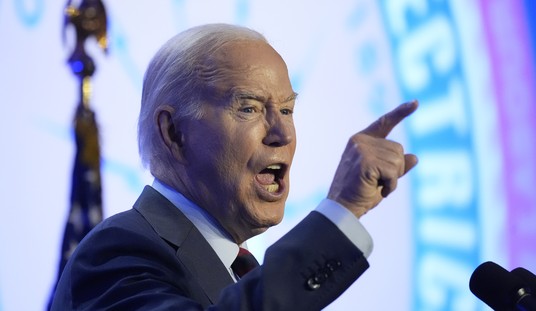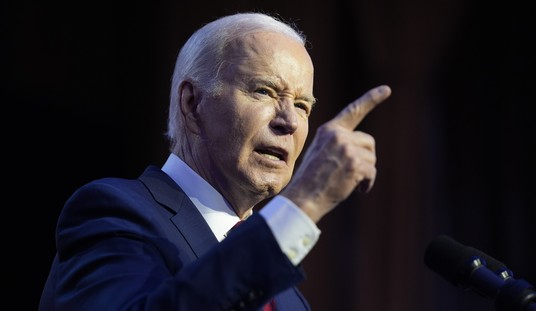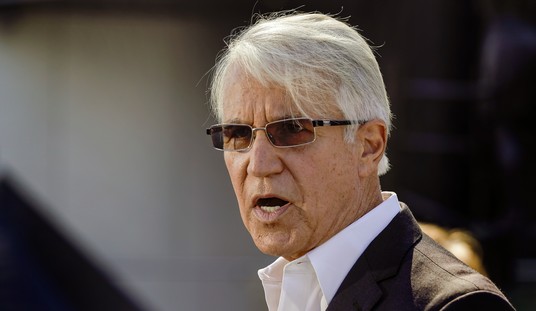
Today a group of sixteen nations joined the United States in a declaration that authorizes the participants to take action to prevent ships carrying cargoes related to weapons programs from either entering North Korea or transferring materials to North Korean ships:
As Member States of the United Nations and as [Proliferation Security Initiative (PSI)]-endorsing States, it is our responsibility to implement UNSCR obligations fully, take advantage of the additional actions authorized in those UNSCRs, and continue pursuing our commitments under the Statement of Interdiction Principles. As PSI-endorsing States, we note UNSCR 2375’s provisions on maritime interdiction of cargo vessels and take note of how these provisions complement PSI’s Statement of Interdiction Principles. We also note UNSCR 2397’s provisions that include new maritime interdiction obligations and authorities to help shut down North Korea’s illicit smuggling activities.
We, the undersigned PSI-endorsing States, reiterate our commitment to upholding the commitments enshrined in the Statement of Interdiction Principles and are postured to help enforce UNSCRs 2375 and 2397 through the following measures, in accordance with national and international legal authorities:
- Inspect proliferation-related shipments on vessels with the consent of the flag State, on the high seas, if we have information that provides reasonable grounds to believe that the cargo of such vessels contains items prohibited under UNSCRs concerning the DPRK.
- If there are reasonable grounds to believe that the cargo on a vessel flagged by one of our countries is prohibited for export to or from the DPRK under relevant UNSCRs, cooperate with inspections pursuant to the commitment above.
- If we, as flag States, do not consent to inspection on the high seas, we will direct the vessel to proceed to an appropriate and convenient port for required inspection.
- Direct our flagged vessels to a port in coordination with the port State when requested; and deflag any of our flagged vessels designated by the 1718 Committee.
- Prohibit our nationals, persons subject to our jurisdiction, entities incorporated in our territory or subject to our jurisdiction, and vessels flying our flag, from facilitating or engaging in ship-to-ship transfers to or from DPRK-flagged vessels of any goods or items that are being supplied, sold, or transferred to or from the DPRK.
- Redouble efforts to implement in full the measures in relevant UN Security Council Resolutions with respect to inspecting, detecting, and seizing items the transfer of which is prohibited by those resolutions.
- Seize and dispose of (such as through destruction, rendering inoperable or unusable, storage, or transferring to a State other than the originating or destination States for disposal) items the supply, sale, transfer, or export of which is prohibited by relevant UN Security Council Resolutions and consistent with other international obligations.
If this works as advertised it will be a significant step forward:
“Maritime interdiction helps us to disrupt resources,” Brian Hook, director of policy planning for the US state department, told the AFP. “We will be discussing with our partners and allies the kind of steps that we can take on maritime interdiction and also to be cutting, disrupting funding and disrupting resources.”
There have been hints of the hidden maritime commerce that takes place between North Korea and other countries. In December, South Korea seized a Hong Kong-registered ship that allegedly transferred oil to a North Korean vessel in international waters. That same month Reuters reported on Russian tankers supplying fuel to North Korea by transferring cargoes at sea, though there was no evidence of Moscow’s involvement.
North Korea is known to sell arms to various nations. In August 2016, custom agents in Egypt discovered more than 30,000 rocket-propelled grenades under bins of iron ore (paywall) in a ship originating from North Korea but flying a Cambodian flag. And North Korea is believed to have profited handsomely by selling arms to the regime of Bashar al-Assad during the Syrian civil war.
Intercepting ships is only one thing the officials gathering in Vancouver will discuss to punish Pyongyang for its nuclear program. North Korea is well aware the idea is under consideration, so expect more fiery rhetoric about the “merciless self-defensive” measures it will take if hit with a naval blockade.
Quite a bit of intel is available on North Korean shipping. In the past, this widespread breaching of sanctions was ignored for fear of offending the North Koreans. That was then, this is now. While this does not amount to a quarantine, you’ll note the authority to stop and divert ships only applies to the national flag carriers of the signatories which is a small number of ships. What it signals is an effort to make the nations who have flagged North Korean ships cooperate with interdiction efforts. Already the US has UN Security Council authority to sanction companies insuring North Korea ships as well as their owners.













Join the conversation as a VIP Member